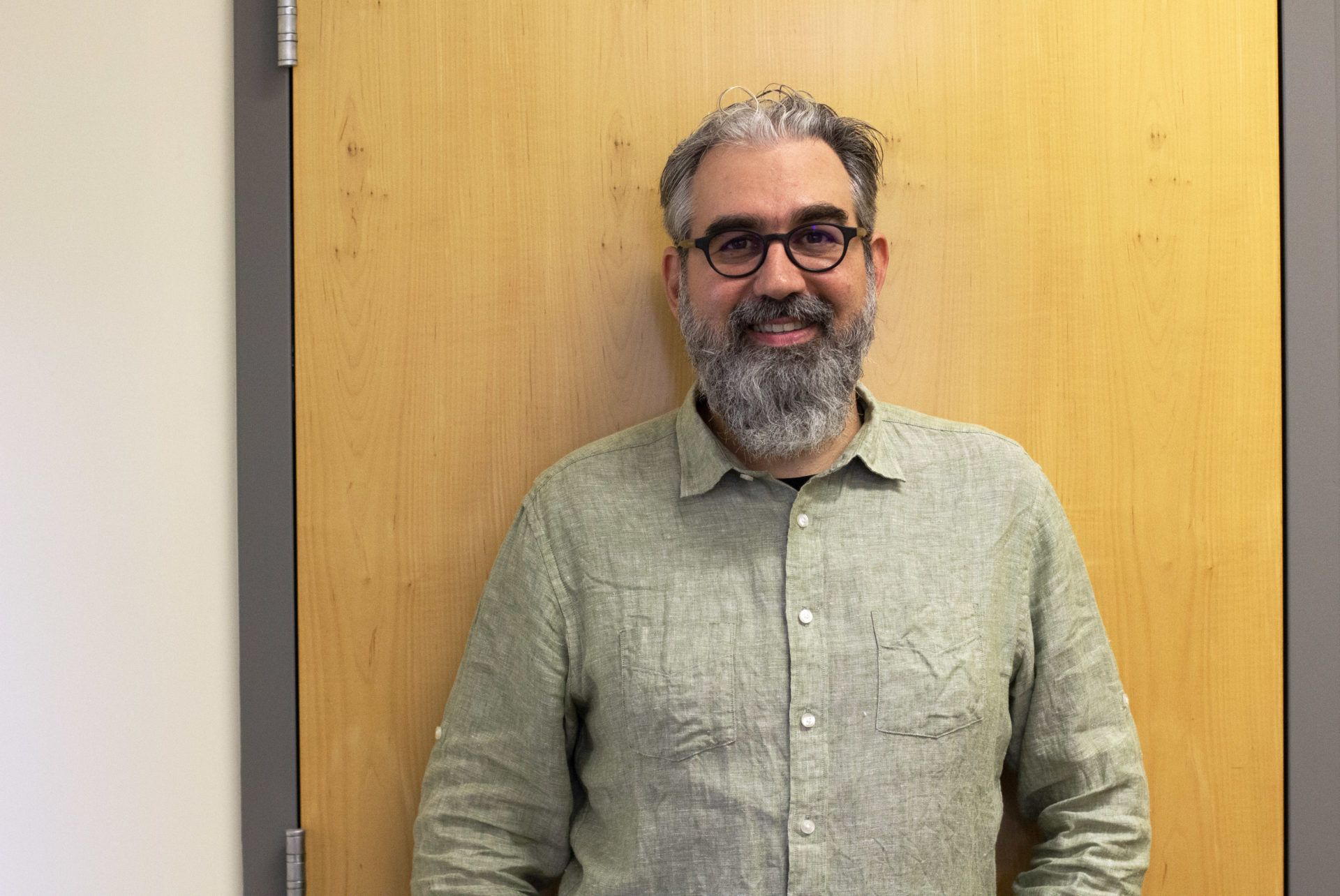
What makes someone the same person over time?
This is the question that Teaching Predoctoral Fellow Phillip Barron hopes to answer in his first year in the Lewis & Clark philosophy department. Having completed the necessary coursework at the University of Connecticut, he is now at LC working on the first year of a two-year predoctoral fellowship, and currently teaching PHIL 217: Conceptions of Selfhood and Personal Identity. In his Ph.D. dissertation, he hopes to give a new perspective of the idea of personal identity through narrative theory.
“(Narrative theorists) are people who say that an essential part of your identity revolves around the stories that you tell about yourself,” Barron said. “My argument is that narrative theory is … the only (theory) that can say, ‘This is why psychological continuity matters, this is why bodily continuity matters.’”
The narrative of Barron’s life up to this point has not been what one would classify as dull or typical. Though he is currently working on earning his Ph.D. in philosophy, he has been teaching the subject for years.
Coming from a family of teachers, Barron grew up with a respect for the profession and knew that it was something he wanted to do. While working towards a philosophy doctorate in a program that did not match his interests at the University of North Carolina at Chapel Hill, witnessing the events of 9/11 made him question whether he was truly doing what he wanted to do. He left his Ph.D. program to focus on his master’s degree instead.
“I finished a master’s degree at the University of North Carolina at Chapel Hill in 2003 and I just started teaching right away,” Barron said.
Since he began teaching, Barron has spent most of his time as an adjunct professor, lending his expertise to a variety of colleges. At times, however, he has moved away from teaching philosophy, spending time at the National Humanities Center in North Carolina and teaching a class on digital humanities at the University of California, Davis.
Along with this, Barron has written two books, the first being “The Outspokin’ Cyclist.” An avid cyclist, he spent time writing for a local newspaper about cycling issues. When a vertigo-induced accident that nearly broke his neck forced him off the bike, Barron was forced to rethink his work with the newspaper.
“(The accident) led to a lot of reflection on how … I maintain my position as a columnist covering bicycling issues for a local cycling community when I don’t trust my body enough to be on a bicycle anymore,” Barron said. “That’s what led to a lot of writing about it, and that eventually got published as a book.”
A few years after publishing his first book, Barron published his second, a collection of poetry titled “What Comes from a Thing,” The book was the winner of the 2015 Michael Rubin Book Award from Fourteen Hills Press and the 2019 Nicolás Guillén Outstanding Book Award from the Caribbean Philosophical Association.
Even though the narrative of his life shifted away from teaching philosophy, it always called him back. Barron explained that it is not the type of subject that one can easily walk away from.
“It was the fact that once you’ve been introduced to philosophical problems, they don’t go away,” Barron said. “You never get past them. You never get tired of thinking about them.”
As a professor at LC, Barron has found an environment to ponder those problems. His previous experience teaching at large, public universities came with advantages and disadvantages.
Barron taught night classes in primarily agricultural communities and found that the “real world perspectives” that students brought to class made the material more grounded and less theoretical. However, class sizes exceeding 100 students meant that at times classes became a show more than anything else, with less of an emphasis on student-professor interaction. Barron has not found these problems at LC.
“(The smaller class) allows for much more one-on-one guidance as we work through how to write a paper, how to write a philosophical essay,” Barron said. “But it also just in some sense frees us up from thinking about the larger bureaucratic things that get in the way in big classrooms or big universities.”
In his smaller class at LC, Barron allows students to try and answer the question: what makes someone the same person over time?
Subscribe to the Mossy Log Newsletter
Stay up to date with the goings-on at Lewis & Clark! Get the top stories or your favorite section delivered to your inbox whenever we release a new issue.

Leave a Reply